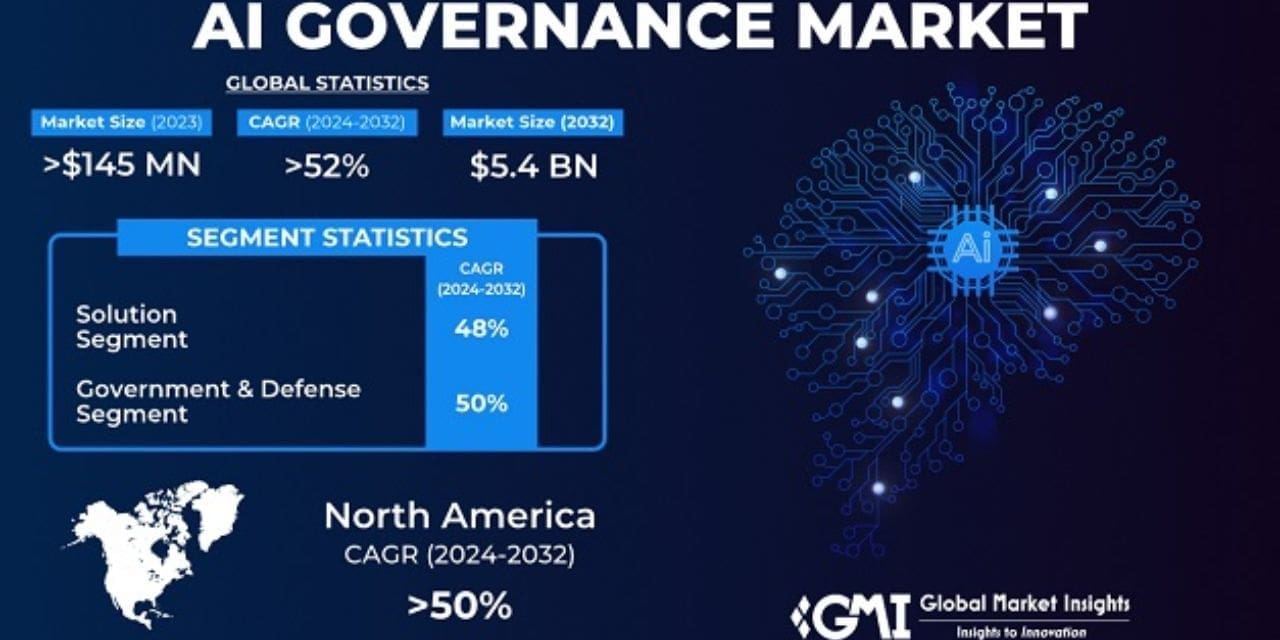In a world where artificial intelligence (AI) is becoming increasingly pervasive, ensuring its responsible development and deployment is paramount. Enter the burgeoning field of AI Governance, dedicated to providing comprehensive frameworks and tools for guiding the ethical and transparent use of AI systems. With AI permeating sectors such as finance, healthcare, and technology, addressing concerns surrounding biases, fairness, and accountability has never been more critical.
Market Insights:
As of 2022, the global AI Governance Market has already reached a value of US$ 114.6 million. However, the real story lies in its projected growth, with estimates forecasting a staggering rise to US$ 4.7 billion by 2033. This remarkable growth, with a compound annual growth rate (CAGR) of 40.5% between 2023 and 2033, underscores the increasing recognition of the importance of ethical AI practices, according to report by Persistence Market Research
Organizations are swiftly adopting AI governance solutions to navigate the ethical complexities inherent in AI technologies. These solutions encompass a range of measures, including ethical guidelines, transparency protocols, and auditing capabilities, all aimed at fostering trust and accountability in AI usage.
Market Trends:
Several trends are shaping the AI Governance landscape, each addressing crucial aspects of responsible AI deployment:
- Automated Governance Solutions: As AI systems grow in complexity, there’s a pressing need for automated tools that can continuously monitor, assess, and govern AI models in real-time.
- Explainable AI (XAI) Integration: The integration of XAI techniques enables stakeholders to interpret complex AI models, aligning with the push for transparency and accountability.
- Focus on Diversity, Equity, and Inclusion (DEI): Heightened attention is being paid to addressing biases related to diversity, equity, and inclusion, ensuring fair and unbiased outcomes.
Market Growth Factors:
Rising concerns about AI bias and fairness, evolving regulatory compliance requirements, the increasing complexity of AI systems, and the adoption of AI in sensitive domains are all driving forces behind the growth of the AI Governance Market.
Opportunities and Challenges:
Opportunities abound within the AI Governance Market, from the development of ethical AI frameworks and certification programs to the integration of AI governance in development pipelines. However, challenges such as the lack of standardization, ethical dilemmas, and navigating the dynamic regulatory environment persist.
Latest Developments:
Recent advancements include the adoption of federated learning for privacy preservation, integration of AI governance principles into DevOps pipelines, and the emergence of AI governance auditing and certification processes.
Conclusion:
The AI Governance Market stands at the forefront of opportunities, offering innovative solutions and services to address the ethical, transparency, and accountability challenges associated with AI. As organizations worldwide recognize the imperative of responsible AI practices, the market presents a ripe landscape for transformative initiatives that shape the future of AI deployment across industries.
In navigating the complex terrain of AI ethics, governance solutions serve as beacons of guidance, ensuring that the promise of AI is realized responsibly and ethically. As we journey into an AI-driven future, ethical governance will continue to be the compass guiding us towards a more equitable and transparent tomorrow.

